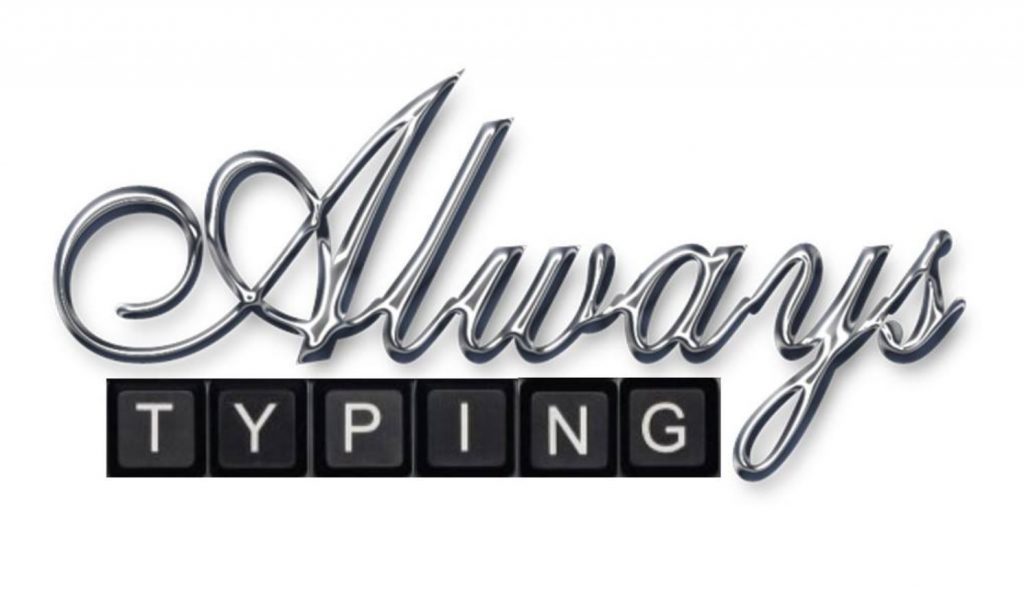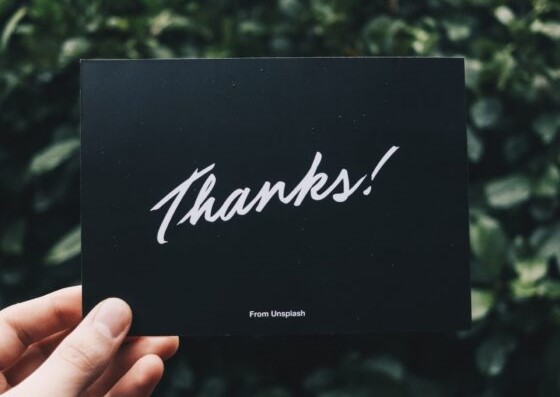Nearly 1.4 million people have been fired or laid off in 2022. If you are one of these people, you’re probably dreading your next interview. Answering, “why did you leave your last position?” isn’t an easy question after a termination. You’re in the right place. This article will educate you on how to explain being fired without making it a huge deal or the focus of the interview. Termination is a tough situation, but with our tips you can move on to your next role soon! How to Get a Job After Being Fired Job searching after termination is a trying time for most people. Not only do you not know how to address it in interviews, but most of the time you will have low confidence due to the situation as a whole. Getting a Job After Being Fired: Do’s and Don’ts You may be wondering what to avoid doing when discussing being fired. We have a few do’s and don’ts to help you stay on track when discussing the situation. Read more below: Don’t Speak Badly About Your Previous Employer Hiring managers do not want to hear you talk badly about another company. This makes you appear bitter and gives the hiring manager a bad impression about the type of employee you are. So, when discussing the termination, stick to the facts and try to keep emotion or too much detail out of it. Do Keep Your Response Simple and Truthful Without Too Many Details You don’t want to lie to a potential employer. This could backfire big time and in a bad way if you did try to lie about a termination. It’s best to keep it simple and truthful without dwelling on it for too long. For example, let’s say you were terminated because of a common mistake in a regular process. It doesn’t matter if the manager didn’t like you and was looking for a reason to let you go. It also doesn’t matter if everyone else in the company did it that way. Those details are not important and shouldn’t be included. Your answer could go something like this: “I was terminated due to an error in a (type of) process. I have since discovered the correct way to do it and feel strongly that the error will not present an issue ever again. In fact, the new knowledge I have regarding (type of) process will help your team with (skill, skill, skill).” PRO TIP: Always end any response, especially one that begins with a negative, in a way that shows what benefit you’ll bring the new company and its team. Don’t Avoid the Question or Lie When asked why you left your previous company, it’s not a good idea to try and avoid the question or to outright lie. Not only will the hiring manager see you are uncomfortable and likely know something is up, but it’ll mean you lose out on the job for sure when they realize what you are lying about. Be straightforward and honest. It’ll show the company you can own up to mistakes (if that was the reason) or handle a challenging situation with grace. How to Quickly Redirect the Conversation to Your Strengths When explaining the reason for termination, it’s vital you let the interviewer know that you have learned from any mistakes that were made and showcase a few strengths. If you were terminated due to a layoff or company closure, those discussions are much more understandable and likely don’t require a lot of redirection. It’s still important you discuss your strengths throughout the interview. For example, if you were laid off, the answer could be: “I was recently laid off at XYZ. While the situation has been difficult, I am confident in my ability to deliver exceptional customer service and help support your company in growing new business.” If you were fired, here is another way to redirect the conversation: “There was a miscommunication about a process and I messed up. I realize now I should have asked for more help on how to do the process correctly. Now, I’m far better at active listening and have become more attuned to my own failings. Being self-aware can certainly be something I use to fulfill the (skill, skill, skill) you require for the (position title).” Job Search After Termination Doesn’t Have to Be Stressful! Now you know how to explain being fired. We hope this article helped you feel more confident going into your next interview. If you haven’t started interviewing yet, you may want to consider a resume update! With a strong resume, terminations aren’t as difficult to explain. Working with a professional resume writer helps you showcase your strengths and abilities in a way that grabs the reader’s attention and makes them want to know more. Don’t start your job search without an updated resume! Check out our packages and let’s get started today.
Tired of Saying “I Can’t Find a Job?” Discover the Most Common Reasons You’re Struggling
Did you know that 47% of interviewers will pass on candidates who know nothing about the company? Or that 65% of candidates don’t get a job because they don’t make eye contact? There are dozens of other reasons why people can’t seem to stop saying “I can’t find a job.” In this article, we cover the most common issues that pop up and prevent people from getting a first, second, or even third interview. Keep reading to learn more! #1 You Need to Improve Communication Skills Many times, when people interview, they get very overwhelmed or anxious and give long-winded answers to questions that could have been answered more succinctly. This is where practicing effective and clear communication is important. By improving this skill, you make your next interview run more smoothly and make yourself appear more confident. #2 You Aren’t Dressing to Impress While some people would argue it’s outdated to dress up for an interview, just as many people would argue it’s important to do this to make a good first impression. When in doubt, it’s better to wear something professional when interviewing. This shows the interviewer you took the time and effort to look presentable for an important meeting. #3 You Aren’t Researching Before Interviews Once you get an interview scheduled, you must research the company. You can go to the company’s website or social media pages to find out a few facts about when it was created or its mission. A great place to research companies is LinkedIn, it’s also a perfect platform for building your professional network. #4 Your Resume Needs an Update One of the most common reasons people state “I can’t get a job” is because their resume isn’t updated. In today’s world, your document must pass through the applicant tracking system (ATS) before it gets to the decision-makers. This means you have to tailor it to every job you apply for. It also means you need a professionally formatted document that can pass the screenings. Resumes with a lot of tables and integrated designs usually do not make the cut. The format should be clean with white space and clearly defined headings above each section. #5 You Aren’t Applying to Enough Jobs Applying for a new job often seems like a job. It’s a timely, but necessary, process. You must apply to many jobs to get interviews. Choosing two or three and calling it a day on the job search isn’t feasible. You should be applying to 10-15 jobs per week. #6 You Aren’t Preparing Enough During Each Stage Before the first interview, you need to research the company and practice answers to the most common interview questions. You should also think of a few questions to specifically ask the interviewer that relates to the company/culture/job. If you are going to a second interview, it’s important to think of specific examples that showcase your leadership, problem-solving, and customer service skills. Remember to demonstrate both hard and soft skills. If you are making it to the third round, you are so close! You’ll want to really prepare for this one because it often means you’re down to one to three candidates. Research the interviewer, have a game plan about your first few months in the job, and any other scenarios you may have picked up on in previous interviews. #7 You’re Overly Excited or Desperate A lot of people struggle with “I can’t find a job I like” and get overly excited when one does contact them. While it’s okay to be excited, you must contain it and remain professional during the interview(s). Candidates who seem desperate for the role are often overlooked because it’s a turnoff to interviews. Think of it like how you would approach a potential date…a desperate person isn’t as attractive as a confident one, right? #8 You Need to Work on Confidence Expanding on number seven, you may have a confidence issue. It’s easy to let the situation take hold and feel unconfident, but it’s important you don’t convey that during an interview. If you don’t feel confident, fake it until you do. The best way to gain confidence is through preparation and practice. #9 Your References Need a Check No one wants to be in this situation, but if you’ve worked on everything else and you still aren’t getting that call…your references may not be on your side. Take a look at the people you put down for references and make sure they are still solid contacts who will give you a good recommendation. It’s also a good idea to let them know ahead of time that a company may be calling them so they are prepared and know to answer the phone. Tired of Saying “I Can’t Find a Job” to Friends and Family? Resolve #4 Today Now you know a few of the main reasons why most people are constantly stating “I can’t find a job.” Many of these problems are easy fixes with a little practice, help, or dedication. If you are struggling because of number four, we are here to help! Working with a professional resume writing company can help you prepare an ATS-friendly document that wows readers. Check out our packages today and contact us to get started on improving your job search!
Avoid These Common Interview Mistakes to Land Your Next Job
Did you know that 81% of hiring managers will not hire a candidate that speaks badly of their former employer? Or that 76% will not hire candidates who are perceived as arrogant? There are tons of other reasons interviews go badly, so you must understand what not to do. This article covers the most common interview mistakes. You’ll learn which mistakes job seekers seem to make over and over again. Also, you’ll learn how to save yourself if you did have a mishap. The Most Common Interview Mistakes Job Seekers Make No one is perfect, not even the recruiter, but some interview mistakes are easily avoidable. Your success hinges on performing some due diligence, including things like performing some research and setting the proper job search goals. These are the most common interview mistakes to avoid: Some of these seem like no-brainers, but they happen every day. It’s important to avoid letting your nerves get the best of you during an interview. With preparation and practice, you can easily ace your next interview. How to Overcome the Biggest Interview Mistakes The best way to avoid several of these mistakes is to prepare properly. That means dressing in an appropriate outfit, researching the company and the interviewer, and practicing your responses. Perhaps you find that you’re running late for the interview. Be proactive about this mistake. Call the company and let them know – don’t wait until you’re there and start to make excuses. The key to overcoming interview blunders is to own your error, apologize, and find out what you can do to make up for it. Sometimes the mistakes made are very offensive to the interviewer, and there isn’t much hope of recovery. In these instances, it’s best to thank them for their time, send a quick email, and move on to other job opportunities. The most important thing is to learn from your mistake, so it doesn’t happen again! Should You Follow Up After Making Job Interview Mistakes? Absolutely! Everyone makes mistakes. Following up with the interviewer shows you are still interested in the role and that you are a professional. Not only does it put your name back in front of the hiring manager, but it also allows you to dispel any oopsies you made during the interview. Plus, emailing a quick thank-you note doesn’t take a lot of effort, so you don’t have anything to lose. Tips on How to Avoid Mistakes Following these tips will help you feel more confident in your job search and help you avoid the mishaps many people make. Research the Company The hiring manager has done their due diligence and looked through your resume and possibly your LinkedIn profile. You have to do the same. Occasionally, you can’t find the interviewer online, but you can find out information about the company. The about section on the company’s website and the social profiles it has are great resources. Looking up articles to see if the company has made the news recently is another way to learn more about any major projects they may have coming up. You don’t have to know everything about the organization, but knowing the basics is a must if you want to impress your interviewer. Review Common Interview Questions Some common interview questions are asked by almost all interviewers. You can easily find an extensive list and then practice how you answer each. For example, most interviews have these questions: Why do you want to work for us? Why do you want this position? Or why are you a great fit for this position? What are your strengths (or weaknesses)? Tell me about a time when… Tell me about yourself A question about a specific problem and how you solved it By putting in the effort now, you have answers for interviews to come, too. So, even if the one you are focusing on doesn’t work out, you are more prepared for the next. Get a Professional Outfit If you are looking for a job, you may be tight on money. There are career centers, thrift stores, and even some non-profit organizations that will help people get interview-appropriate outfits. You can do a quick Google search or ask around in your community for local resources. Obviously, you can purchase a new outfit, if you have the funds. There are two types of attire–business casual and professional. For business casual, you’ll want a nice pair of slacks and a professional-looking blouse or button shirt. Professional attire is some type of suit. Learn Interviewing Techniques You may have heard about the STAR method. It is a great technique used for both the resume and the interview. With it, you shape your answers based on the following: Situation Task Action Result This gives the interviewer a clear outline of what the problem was, what you were tasked to do, what actions you took to solve it, and what results happened from those actions. The STAR method makes your accomplishments more impactful so they stick with the hiring manager. Get Your Resume Ready for Your Search Today Now you understand common interview mistakes and what steps to take to avoid them. We hope this article helped you understand the importance of preparing for your next interview! Before you start interviewing, you must ensure your resume is interview ready. A professionally written resume lands approximately 40% more interviews than other resumes. Contact us today or check out our services to learn more.
How to Send a Follow-Up Email After an Interview With Examples
Did you know job interviewers have about a 37% chance of getting an offer after one interview? Did you also know you can improve that chance by sending a follow-up email after an interview? It is not only polite, but it makes a good impression on the hiring manager/interviewer. Plus, it is an opportunity to get your name in front of the decision-maker one more time. Interview follow-up is often a daunting task because most people don’t know the rules around what to do and when. If you do it too quickly, you look desperate. If you wait too long, it seems like an afterthought. So, when do you send a follow-up? Keep reading to learn more about the guidelines for following up after your interview. And get an example you can use to follow-up after your next meeting! How to Write a Thank You Email After an Interview Despite what many people think, sending a thank you note after an interview doesn’t take long to complete. While writing a letter may be simple and not take a lot of time, the gesture is loud and memorable with hiring managers. When writing your thank you letter after an interview, make sure you include the following: A personalized greeting Show gratitude for their time and effort Let them know once again how interested you are in the role Be specific when showing interest in the role; include the title Include a question about the next steps and/or status of your application Include any additional information that was requested (such as references) Thank them again for their time Let them know you look forward to hearing from them soon Sign it with your name and contact information You must proofread your email. You can run it through Grammarly’s free app or get a friend to look it over. You don’t want to get disqualified for a simple mistake. Example of a Job Interview follow-up Email A follow-up thank you note does not have to be a letter. It can be a few short paragraphs that express your gratitude and interest. Here is an example: Dear interviewer, I hope you are doing well today. I wanted to send a short note to thank you again for the opportunity to interview for the open role title with the company’s name. I enjoyed getting to know more about you, the company, and the team. I was hoping to follow-up about the status of my application and find out the next steps. I am extremely interested in the role and believe I am a great fit based on two or three qualifications discussed during the interview. I look forward to speaking to you soon. Sincerely, Your name email/phone number You can even use this exact template and fill in the bolded and italicized parts of it. When to Send a follow-up Email After an Interview You need to send a thank you note within 24-48 hours after the initial interview. You likely won’t have a decision in that amount of time, but sending it within that time frame is recommended in the resume-writing industry. This lets the interviewer know you are interested in the role and are professional. It is okay to send another email after 7-10 days following the initial thank you to check on the status of the application. You don’t want to send multiple emails in a short time or continue to send emails if you do not receive a response. Hiring managers are very busy, and some companies don’t follow-up with candidates who didn’t make the cut. Here’s What to do if You Have Completed Multiple Interviews The above rules are best followed after an initial interview. But what if you are past that interview and waiting for a final decision? If you get past the first interview, we recommend you ask the recruiter in person about how long they think it will take to make a decision. In fact, a great place to ask this question is at the end of your interview when they want to know if you have questions for them. Most companies don’t spend a very long time on this part of the process. In fact, only 43% of job postings close in 30 days. If you still haven’t heard from them after a week or so, it’s okay to send an email to check-in. Don’t panic if you haven’t received a follow-up in a week! You don’t know if other people had to be interviewed before a decision was made or if others were involved in the decision. These things take time, and while it makes waiting a pain, it doesn’t instantly mean you were passed over. Interested in improving your chances of getting your dream job? Check out this article about how to use LinkedIn and your network to improve your opportunities. Update Your Resume Today to Improve Your Job Search Results Now you understand when to send a follow-up email after an interview. While the email may be short and sweet, the impact could mean you land your next job. We hope you understand the guidelines for interview follow-up, depending on where you are in the candidate process. Are you not landing enough interviews? Your resume could be the problem. Contact us today to discuss your options for optimizing your resume so you get more interviews!






